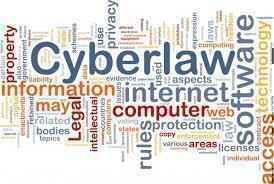



In the age of smartphones, social media, online classes, and digital everything, cyber law and digital rights aren’t just for lawyers or IT professionals — they’re essential knowledge for every student. From understanding your rights online to knowing the legal boundaries of digital behavior, being informed can protect you (and others) in the digital world.
This article breaks down the basics of cyber law, explores key digital rights, and highlights what students absolutely need to know to stay safe, legal, and empowered online.
Cyber law refers to the set of legal principles that govern activities conducted over the internet and digital platforms. It covers a wide range of issues, including:
Online behavior
Data privacy
Cybercrimes
Digital transactions
Intellectual property
Freedom of expression online
As technology evolves, so does cyber law — making it a dynamic and critical field.
Even innocent actions online can sometimes cross legal lines. Here's a list of digital activities that can have serious legal consequences:
Sending threatening messages, sharing harmful content, or harassing someone online can be considered a criminal offense in many countries.
Schools and universities often have zero-tolerance policies, and legal consequences may include fines or jail time.
Accessing someone else's account (even a friend’s) without permission is illegal, even if you “just wanted to look.”
Tools like keyloggers or password crackers are often illegal to use or distribute.
Downloading or sharing copyrighted software, music, or movies without proper licensing is a violation of copyright law.
Copying someone’s code, content, or research without credit isn’t just unethical—it may also violate copyright or academic honesty policies.
Sharing or possessing explicit images of minors (even if they are your peers) is not only inappropriate — in many jurisdictions, it’s considered child pornography, a very serious criminal offense.
Just like in the real world, you have rights in the digital space too. Here are a few digital rights you should understand and protect:
Your personal data — such as messages, photos, and browsing habits — is protected under privacy laws like GDPR (Europe) or CCPA (California).
Apps and websites must get your consent to collect data and must disclose how they use it.
You have the right to express your opinions online — but this doesn’t mean you’re free from consequences (e.g., hate speech, threats, or violating school conduct rules).
As a student, you have the right to access educational materials and information — many universities are pushing for open access and digital learning platforms.
Some regions grant you the right to request the deletion of personal data from websites or social platforms — particularly if it’s outdated, irrelevant, or harmful.
In today’s hyperconnected world, students are often early adopters of new tech — which also makes them more vulnerable to online threats and legal missteps.
Here’s why understanding cyber law matters:
Protect Yourself: Know what’s legal and what’s not, especially when using school networks or participating in online discussions.
Protect Others: Avoid unintentionally harming classmates or spreading harmful content.
Build Digital Citizenship: Develop a respectful and responsible online presence.
Enhance Career Readiness: Many industries now require basic knowledge of cybersecurity, ethics, and digital compliance.
While laws differ from place to place, here are some common international cyber laws and frameworks:
| Law / Framework | Region | Focus |
|---|---|---|
| GDPR (General Data Protection Regulation) | Europe | Data privacy & user consent |
| CCPA (California Consumer Privacy Act) | USA (California) | Consumer data rights |
| IT Act 2000 | India | Electronic transactions, cybercrime |
| Computer Fraud and Abuse Act (CFAA) | USA | Unauthorized access to systems |
| Cybercrime Prevention Act | Philippines | Cyber offenses like libel and hacking |
If you’re unsure about local laws, check your school’s internet use policies or consult cyber legal resources specific to your country.
Here are practical tips every student should follow:
Use strong, unique passwords and enable two-factor authentication (2FA).
Don’t share accounts or passwords — even with friends.
Think before you post. Even deleted content can be screenshotted or retrieved.
Avoid using pirated software or illegal downloads.
Respect copyright when using content in presentations or projects.
Report cyberbullying, scams, or harassment to your school or local authorities.
Read terms of service and privacy policies (yes, really!) to know your rights.
Cyber law isn’t just about rules — it’s about respecting others, protecting yourself, and understanding your digital rights. As a student, you’re spending more time online than ever before. That means it’s crucial to be aware, informed, and responsible.
By learning about cyber law and digital rights early on, you’re not only avoiding trouble — you’re becoming a smarter digital citizen ready for the future.
#trending #latest

University Internships That Help You Get a Job After Graduation... Read More.

Is It Smarter to Start at a Community College... Read More.
 Fake posts hit Czech PM Fiala's X
Fake posts hit Czech PM Fiala's X
Fake posts disrupt Czech PM Fiala's X account security
 Switzerland Tightens Export Rules
Switzerland Tightens Export Rules
Switzerland expands export controls on dual-use goods
 Google unveils Ironwood AI chip
Google unveils Ironwood AI chip
Google introduces Ironwood chip to accelerate AI tasks & apps
 TSMC Q1 revenue up 42%
TSMC Q1 revenue up 42%
TSMC sees 42% revenue surge in Q1, surpassing forecasts
 Amazon CEO Outlines AI Vision
Amazon CEO Outlines AI Vision
Amazon CEO reveals AI investment plans in new letter
 Osaka Hosts World Expo 2025
Osaka Hosts World Expo 2025
Japan blends tech and culture at Osaka Expo 2025 launch
 A16z Plans Big Bet on AI Startup
A16z Plans Big Bet on AI Startup
A16z may lead huge round in ex-OpenAI CTO’s new AI firm.
© MyEduGoal. All Rights Reserved. Design by markaziasolutions.com